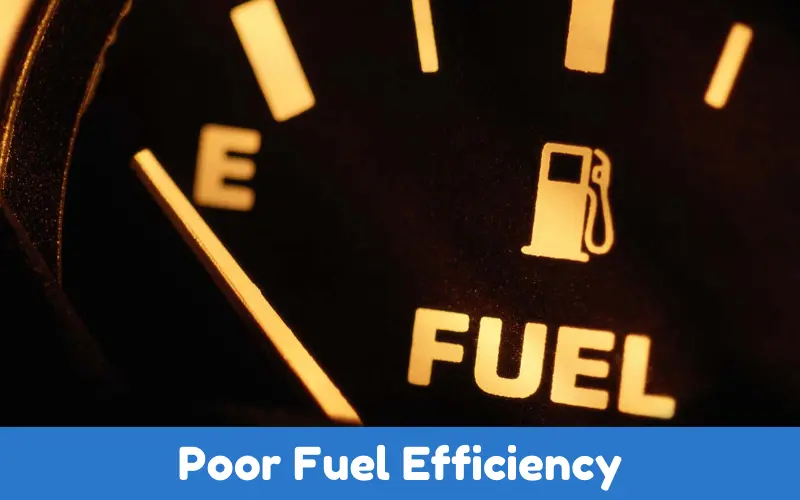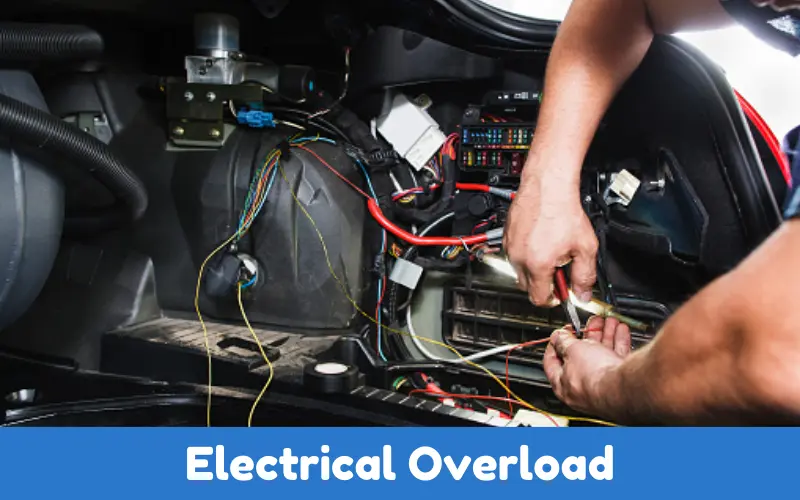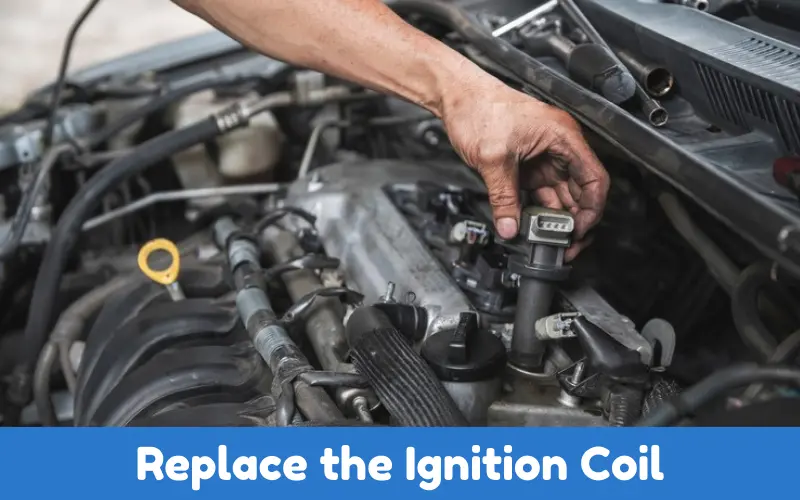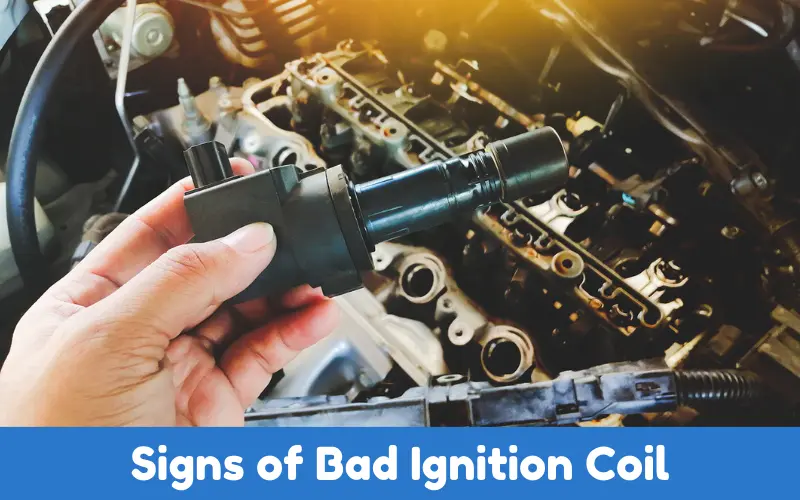An ignition coil functions as part of the ignition system of a car to produce enough spark to ignite the fuel in an engine so it can start.
One thing’s for sure: the spark plugs won’t ignite without an ignition coil. However, signs of bad ignition coil can lead to misfires, rough idling, poor fuel economy and more.
Catching it early should prevent a lot of damage to the engine and save you money! In this post, we will cover the main symptoms.
Topic Summary
Signs of Bad Ignition Coil: What You Need To Know
The ignition coil is a very important component of your car’s ignition system. It takes the low voltage from your battery and converts it into the high voltage, which causes the ignition spark to fire the air fuel mix in your engine.
But when it fails, it could cause a whole range of problems with your car. Spotting the signs of a bad ignition coil early can help you avoid a breakdown, further damage and expensive repairs.
You need to know what to look for. As a rule, here are the main symptoms.
1. Engine Misfires
Another tell-tale warning is that you need a new ignition coil or at least an ignition coil service, which is also the most obvious engine misfire.
Because its job is to produce the spark required for combustion, when the ignition coil can no longer generate enough voltage, the engine obviously won’t be completing combustion properly.
Of course, those who are familiar with car breakdowns will know the feeling. Driving the car will feel like it’s jerking or sputtering, particularly when you hit the accelerator.
2. Hard Starting
Friction among the moving parts of the engine can generate a great deal of heat due to friction. One possible cause for starting problems could be a faulty ignition coil.
If the coil is faulty, your car might not start immediately. It will start after a few tries, though, because the spark will be intermittent.
In cold weather, the coil would be less efficient at generating sufficient voltage to start the car.
3. Poor Fuel Efficiency
If anything is wrong with your ignition coil, your engine is going to use more fuel than it is supposed to, and you will get fewer miles for your money.

If your car is using more gasoline than usual, a bad ignition coil could be the reason.
4. Loss of Power
One of the most obvious symptoms of a faulty ignition coil is reduced power or slow acceleration.
Without a proper spark, your engine won’t deliver any power, which can lead to poor overall performance, especially when going up hills or accelerating.
5. Check Engine Light
The modern vehicle has an onboard diagnostic system that monitors the engine to detect problems.
If an ignition coil is bad, then it could be responsible for causing a check engine light to turn on, mainly if it starts causing misfires or performance problems to occur. A basic diagnostic scan can tell us if the ignition coil is the problem.
6. Rough Idle
A bad core in an ignition coil can also cause a rough idle. If your car seems to vibrate or shake when idling or seems to be moving to and fro when you have it stopped.
It could be because something is amiss with the spark going into the engine, and that tells you that a bad coil is probably at least a partial culprit.
7. Backfiring
If your car’s engine backfires, something could be wrong with your ignition coil. A backfire happens when unburnt fuel in the exhaust system is ignited, which can happen when your ignition coil fails to provide a sufficiently strong spark.
8. Stalling
Carbon deposits can also get lodged in the intake manifold, and this tends to cause cars to stall at low speeds, such as at residential stop signs.
A bad ignition coil can cause an engine to stall, and if it continually shuts off and then restarts, it will reduce the life of the engine.
What Causes Ignition Coil Failure?
Several factors can cause an ignition coil to fail, including:
Wear and Tear: Over time, ignition coils wear out, especially in older vehicles.
Heat Exposure: Due to extreme engine heat, the coil usually gets destroyed.
Moisture: Water or moisture getting into the ignition system can damage the coil.
Electrical Overload: Faulty wiring or a problem with another component causes the ignition coil to work too hard.

Can Ignition Coils Be Cleaned?
Although they sometimes fail due to poor contact or electrical problems, ignition coils must be replaced when they fail.
They can’t be ‘made new’ by cleaning, as can some car parts that deteriorate through age and wear.
Superficial dirt or debris on the coil exterior can be removed by cleaning, but this won’t restore deterioration caused by heat, moisture or electrical stress inside the spark plug cap. If an ignition coil is performing poorly, replacement is generally your best option.
How To Replace a Bad Ignition Coil?
If any of the above symptoms apply, it’s important to get on it, as ignition coils are one of the easier components to test and replace. Troubleshooting a bad ignition coil and how to fix it:
Determine the Cause
Get a diagnosis with a diagnostic tool or mechanic to find out if the ignition coil is the problem.
Replace the Ignition Coil
Now that you’ve confirmed it, replace the bad ignition coil with the new one.

Check Others Parts
If you replace the coil, check out the spark plugs and spark plug wires as well, as they can be affected, too.
FAQs on Signs of Bad Ignition Coil
What Happens If I Drive with a Bad Ignition Coil?
A bad ignition coil can cause engine misfires, decreased power, poor fuel economy, and possible damage to the catalytic converter, making it more expensive to repair as time goes by.
How Can I Tell If My Ignition Coil Is Failing?
If you have a failing ignition coil, symptoms can include engine misfiring, rough idling, hard starting, reduced power, poor fuel economy and illumination of the check engine light. If you see any of these, it’s time for a coil check.
Can a Bad Ignition Coil Cause a Car Not To Start?
Yes, if the coil is faulty, it can stop the vehicle from starting by not creating a spark to ignite the air fuel mixture. In particular, the destruction of the coil might explain the problem.
How Often Should I Replace My Ignition Coil?
A spark plug wire is called an ‘ignition coil’. Replacement of your ignition coils is rated at 100,000 miles or better under regular driving conditions and basic engine maintenance. Should you have any indicators of failure, check your ignition coils for early replacement and avert more engine problems.
Can I Replace the Ignition Coil Myself?
If your ignition coil needs to be replaced, yes, you can replace it easily using a few standard tools, but if you’re uncomfortable around cars, it’s best to have it done by your mechanic.
Conclusion
A worn-out ignition coil may cause a whole range of performance issues, such as engine misfires or less than optimal fuel efficiency, for example.
So, if you notice any of the abovementioned symptoms, take your car in for a thorough inspection and have the coil replaced immediately if necessary.
The earlier the problem is fixed, the less expensive the damage to your engine will be if any contractors are to be believed.
Taking good care of the ignition system by regularly maintaining it and replacing worn-out components in a timely manner will help keep your car in good working condition.

